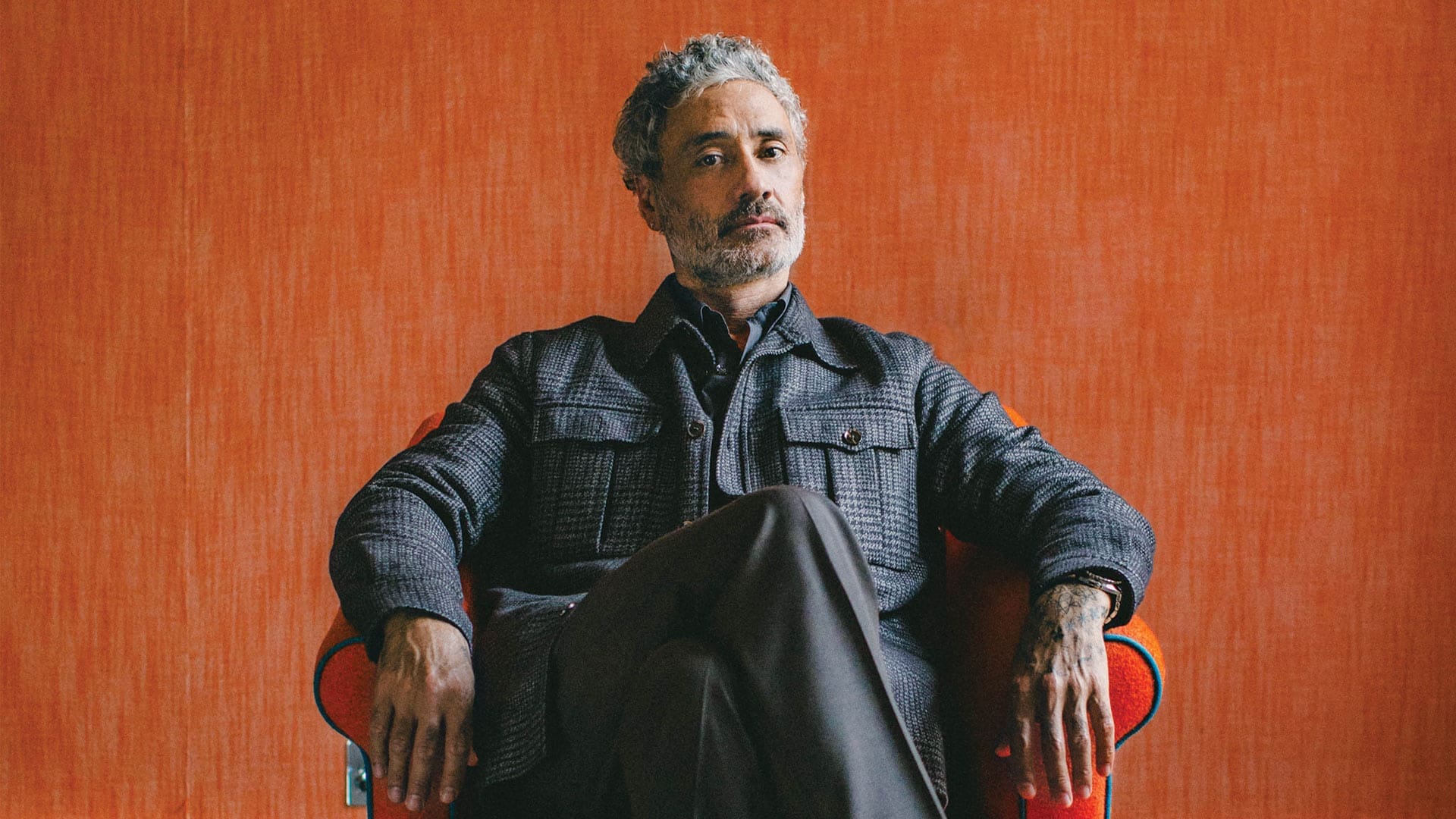Taika Waititi: Balls! Balls! Balls!
Taika Waititi is the filmmaker who dances on the line between the absurd and the profound with a sardonic twinkle in his eye. Celebrated for his offbeat hits like Jojo Rabbit and Thor: Ragnarok, Waititi now turns his unique lens on Next Goal Wins, a film that delves into the comically tragic saga of the American Samoa soccer team. Remembered for their infamous 31-0 defeat in a 2001 FIFA match, Waititi doesn’t just recount their story, he crafts a story that’s as much about the ridiculousness of the situation as it is about the human spirit’s stubborn refusal to give in.
Action…
What’s up bro?
First of all, I just want to say I watched the movie the other day, I loved it. It’s right up my alley… sports movie and comedy as well, especially considering the paucity of really good ones in the genre. Are you much of a sporting chap yourself?
I played football when I was young before I started playing rugby. I think that’s sort of what most kids start with but then I found rugby and that was it. Then after multiple broken things, I stopped when I was about 34.
Were you on the wing?
I was on the wing and then when I was bigger, I was number six. Now I’ve got to the lithe state that I’m in now and because I just would play a little more socially and I could jump into any position.
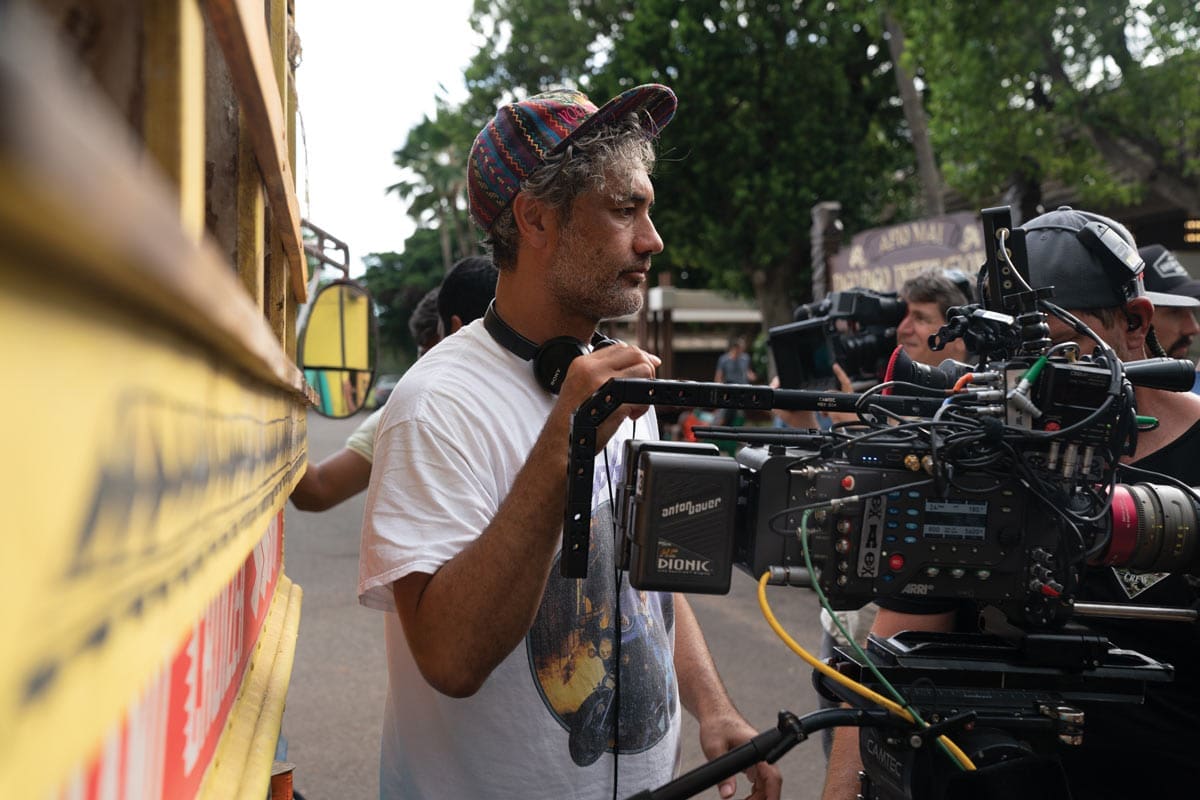
Still, number six is a pretty hardcore position.
Yeah. People have gotten bigger now though. In the ’90s, it was like, “Oh yeah, that makes sense that you’re in that position.” But now, it’s like it doesn’t matter, everyone’s just a giant.
Yeah, they’re huge and it’s all about collision, whereas, watching an old game from the ’90s – John Kirwan and Terry Wright – those sort of guys, they were so lithe. But just on that note, how good does it feel to hear the story of the world’s worst international football team ever, turning their fortunes around and then going, “Yeah, there’s a movie in that” and then being actually able to go ahead and make it?
Amazing. So I watched the documentary that was made a few years ago and the documentary is so brilliant. It’s an emotional story and it’s got everything; I watched it and I was like, “My god, it’s like everything is just sitting there. It’s laid out for you. And basically, you don’t have to do any work”. So I chased dow the filmmakers of the documentary and I was like, “Okay, how do we do this?” We just got chatting, wrote the script, we met Iain and then we did it. It was one of those films that just fell into place.
You had an awesome reference to the famous Al Pacino “inch by inch” speech from Any Given Sunday. So as a sports fan, were you a real fan of that movie?
I was. I know nothing about American football, just like I know nothing about soccer. But I love sports films, I love sports and I love watching it. And I love underdog films and those stories about teams who are down-and-out, and have lost hope, suddenly clawing their way back.
And you kept the same name as the documentary.
I was trying to think of some other titles for the film while we were editing, and even while we were shooting and the best I could come up with was balls and an exclamation mark. But I wanted it in the keep kids off drugs font, you know– the red. Balls! Exclamation mark. Balls! Balls! Balls! Yeah. Tora, Tora, Tora.
It might get a different audience though, that one.
Balls! Balls! Balls! Yeah. Balls! Balls! Balls! Yeah. It’s all happening down here.
All your jokes about living on a small island like American Samoa ring so true to anyone who has ever spent any time on any of the Pacific Islands. Did you spend much time there to get the flavour?
Not in American Samoa but I’ve been to a lot of islands and and it’s all the same. Also, even though New Zealand is a big island, where I come from in Waimea Bay, it’s the same vibe. It’s just colder. You know, it’s nice. But it’s that small-town, tiny community vibe where you just make do with what you’ve got and it’s all about the people and the heart and the soul.
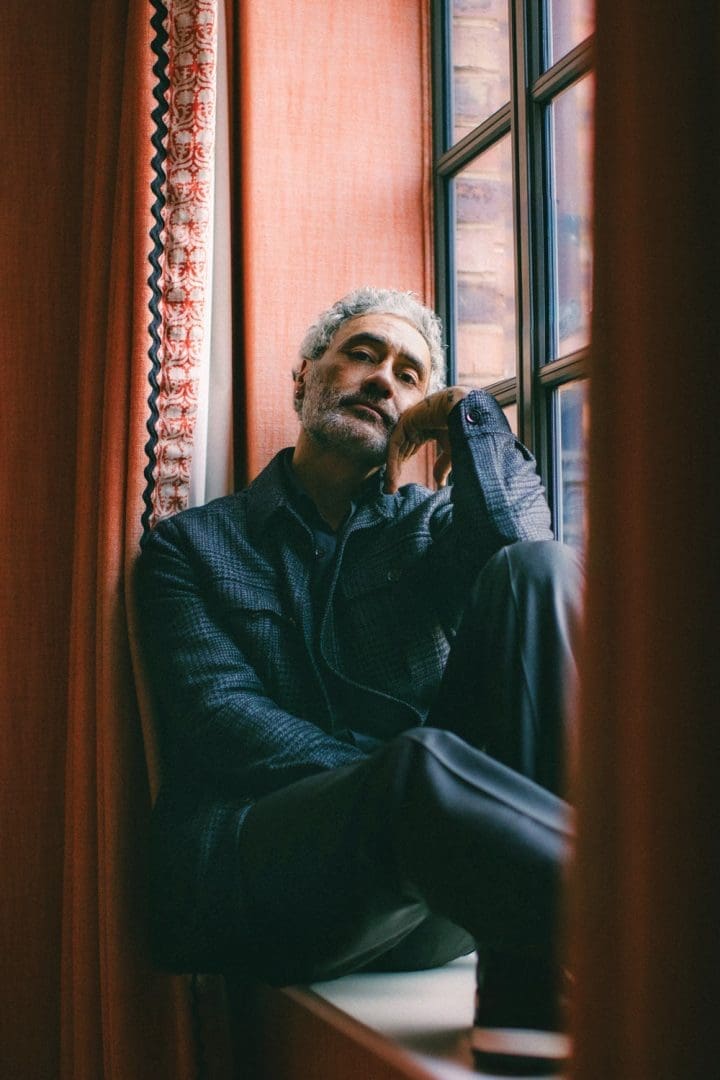
Yeah, but also the things like the really crappy internet.
You always have the single store. When I was growing up ,there was nothing in it. It was like four cans of beans.
Yes, like Mainland cheese or Valuemetric cheese – that’s your choice.
I like that the shop is also the gas station and also the post office.
As you pointed out in the script, religion is a really big deal in island culture. Do you expect to get any grief out of poking fun at religion?
I like poking fun at humans and I think religion is a funny thing. I’m very into spirituality and belief but I think the idea of religion is just kind of ridiculous. It’s good to believe in something and I think it’s good to be spiritual and I think that in general, the idea of religion has got us in a lot of trouble as a species. Having said that, I do think this whole story is about belief. And it’s about giving yourself over to whatever higher power you believe in. Whether that be the idea of sport or football, or the idea of a team, which is basically family.
In a lot of countries like South America, for example, football and religion are very closely aligned. Even in the islands with the rugby sevens – I’ve been in the Cook Islands and on Saturday morning everything stops for the school rugby and then on Sunday for church. So it’s like they are sacrosanct times.
Yeah. That’s also great as well. It’s like you can’t impose a Californian or Hollywood or Auckland way of life, schedule or way of working on the islands and I love that. You just have to stop. And the whole film is about this guy going in and just letting go and giving in because you can’t beat the islands. You can’t beat the lifestyle, you can’t beat them at their own game.
Looking at your career, you’re not afraid of taking risks. What do you think the biggest risks with Next Goal Wins were?
I think the biggest fear, or the thing that I had in the back of my head was whether I was going to do service to the story. If you’re telling a story like this, you want to celebrate the islands and the people of the islands. And also, you don’t want to belittle cultures or undermine the importance of cultures or the people or the ways of life, but also I want to make my films entertaining and I want to poke fun at some of the idiosyncrasies that you’d find in communities or in places that other people and audiences haven’t been.
When you make a point, you come from the rounder side rather than bluntly hammering somebody over the head. That’s probably one of your styles, isn’t it? Your style is unique and very strong. Has there been much pressure on you to change or to conform at all?
Not really. I think I was lucky in that after my first film, Eagle vs Shark, I went over to America and they offered me a few scripts and some projects, which I turned down, and I decided to keep coming back to New Zealand. I just came back here and spent another ten years making films in New Zealand. WI knew if I made these films in the States straight away, I would probably be controlled a lot more and I’d lose any real identity I had. So I made sure to come back here, keep making films, then I made Boy and then I made What We Do In The Shadows and Hunt for the Wilderpeople, and those first four films solidified my style – a style that you couldn’t fuck with.
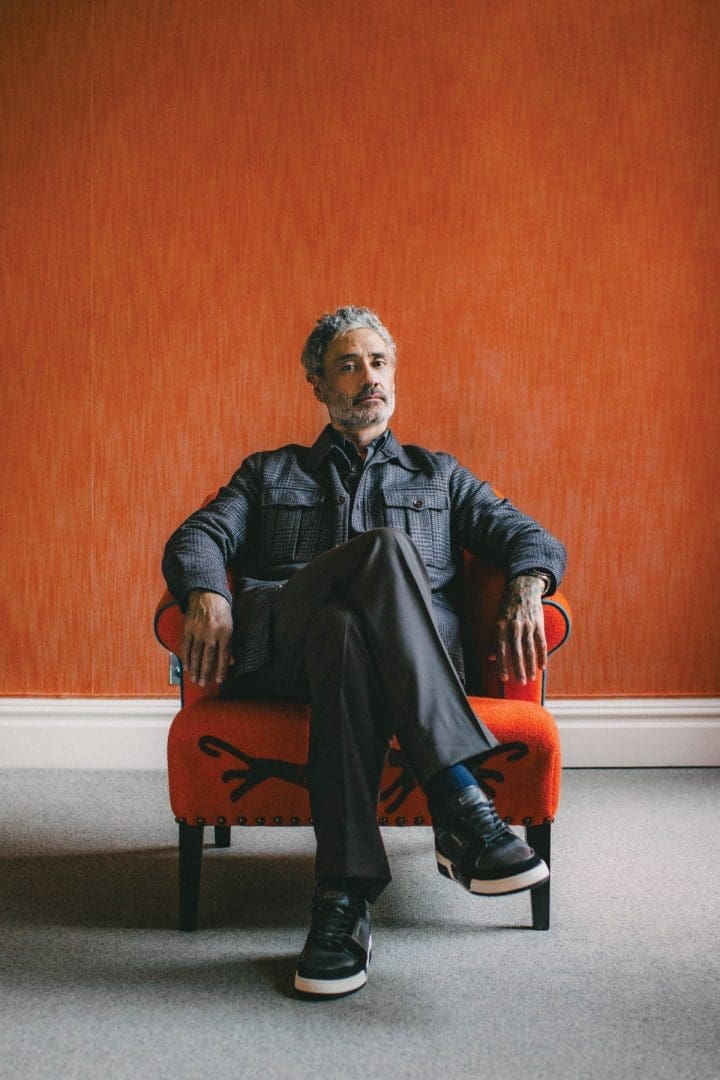
Yeah, you couldn’t say, “We didn’t know this was the kind of film you were planning on making.” It’s like, “Look at these four films.”
That’s just what I do. So, it takes all the pressure off now because then it’s just like, watch these films and that’s basically what you’re going to get. And so you can’t say, well, I surprised you.
Luciane Buchanan has gone from Point Chev of Auckland to headlining a TV show, The Night Agent. Is it fair to say that your continued success has helped make it easier for Kiwi kids to believe they can get into the industry and just go for it?
I hope so. What I like more is just when kids in my community or smaller indigenous communities especially want to do film or they’re just in the arts. When I was growing up, it was really hard to even say I want to do this as a job. I didn’t want to make film, I was not even interested in film at all until I was in my twenties. But what’s cool now is you’ve got these young teenagers who want to pick up cameras or want to act or dance or sing. And it’s just so much more normal now. You used to get so many hassles in the ’80s wanting to do art. We were growing up in a time where it was so controlled and everyone was trying to be macho all the time.
Dave Fane told me that a lot of his mates once they found out he got into TV and acting, would hang up on him. So did you get much of that?
Nah, both sides of my family were really supportive. Both my mother and my father, I feel would have been more disappointed if I wasn’t in the arts. That really pushed me. I think I have quite a different story than most people have. My Dad was a painter. He just wanted me to do that and my Mother just wanted me to write, read books and to perform.
The island world you created – I didn’t want to leave. Do you have plans to do more Pacific-based comedies?
No, I’ve exploited them enough I think. I’m going to another culture. I don’t know. I think it depends. Personally, I would love just to do all my films on islands because it was the coolest style of shooting. We only did daylight hours and just when the sun went down, we stopped work, and went and had cocktail up at the bar, bed. And then I did it all again. It was like an amazing experience and I really understand now why people want to just shoot things on islands.
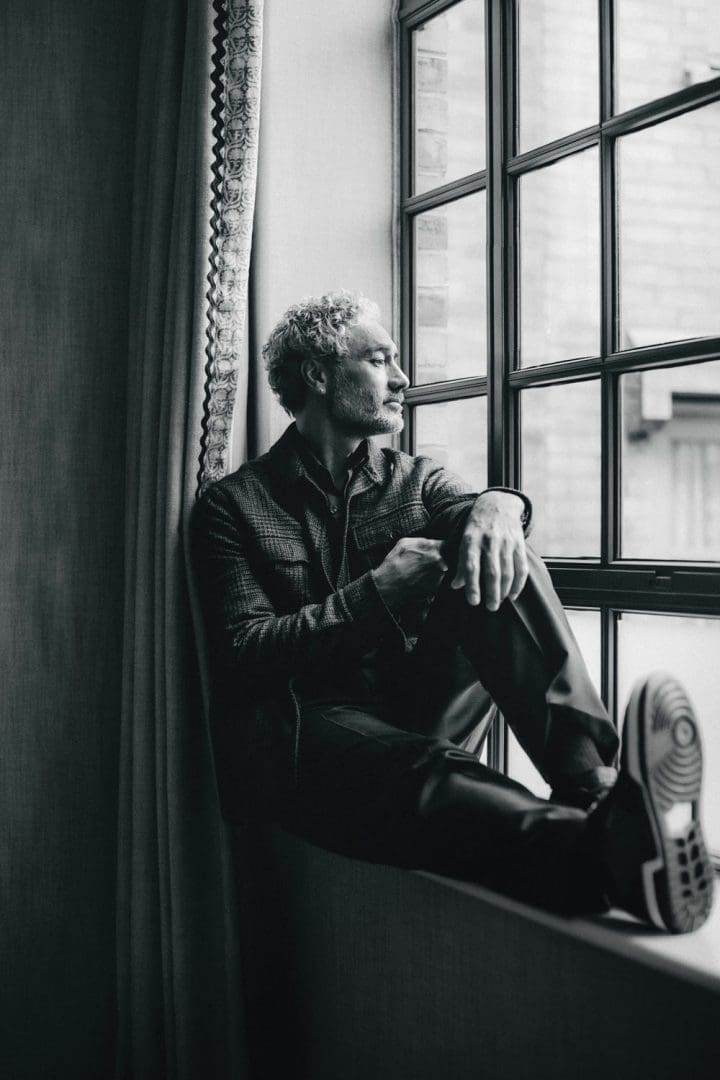
Do you wake up and go, “Man, is this really happening to me?”
I often do, and, it helps me to live a beautiful life. But I wake up and I just make sure that I don’t take it for granted or don’t start feeling like it’s not good enough. Because from where I’ve come from to where I am, it’s a pretty amazing trajectory. And I’m very lucky and I have a lot of really nice luxuries. And I often do just go, “Man, don’t forget, this is pretty awesome. It’s very rare to have this stuff. And you know, the alternative.” I also say to people when they bitch and moan on set, “How good have we got it? It’s hard work, but it’s like a fantasy job. We just get to go to work, and we make shit up, and we put on funny clothes, and then we fuck around all day and then we go home.” And you know, it is stressful, sometimes incredibly stressful but the alternative – think about the alternative of what we do, you know there are some bad jobs out there.
There’s always a lot of fantastic comedy in your movies. Do you work it out on set or do you have a notebook full of ideas that you’re just dying to put in there?
I think about stuff a lot and then I’ll write notes down. But if something jumps out at you, you go, “Hey, let’s go with that. That’s on set, yeah – I just open myself up to whatever. If there’s any happy accident, I’ll just go with that.
And because you’re writing your own material a lot of the time, you’re quite open to have gags coming in?
All the time. I use everything that I write as a sort of base, a foundation. Something to fall back on, like a medium. We can always do the script, but let’s see what else we can get while we’re here. And I’m trying to get as many different things as I can in a certain location. And sometimes I’ll shoot a scene two or three different ways. I’ll have finished the scene and then we might do the whole thing from a different part of the room And then from there, we might realise, “Oh, this is way better, and then we’ll reshoot everything over there. You’ve just got to keep playing.
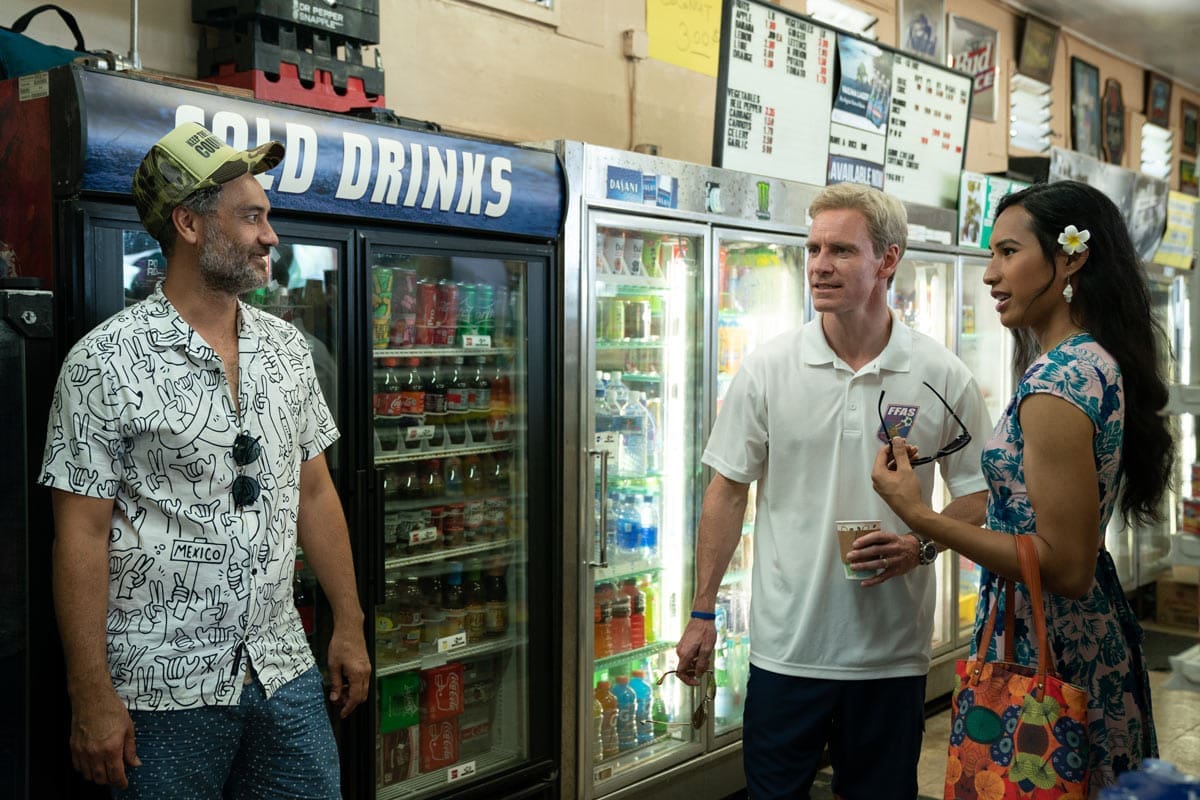
You’re really good at getting messages across in your movies without getting preachy or patronising. It sounds like it’s pretty much a conscious decision.
I think it’s important to have a thought behind your film or a thread or a message. I think even if you’ve got the idea of some sort of vision of what you’re trying to say and then while you’re making it, it’ll eventually find its way in there. If you just keep reminding yourself, this is what this is about.
Everyone was good in the movie, but man, how good was Oscar?
Oscar [Kightley]’s amazing. Oscar’s so good in the film. I already knew he was a great actor from Harry, the show that he was in. He’s also honestly one of the best writers we’ve got. He’s consistently just one of the smartest people I know. I really look up to him as someone who knows his shit. He’s very well read, he’s a very smart guy. He’s always just a great energy to have around and also very calm under pressure.
Do you miss Wellington?
I do miss Wellington. I don’t need to live there just yet again. It’ll always be there. My Mum’s still there. I will eventually go back and spend more time there.

